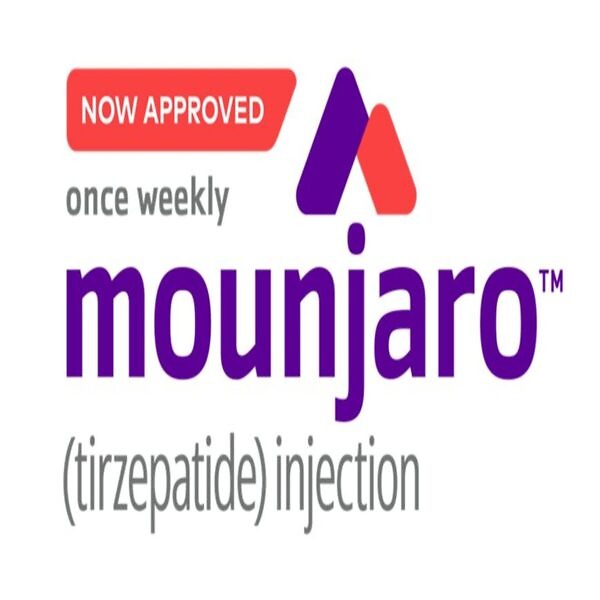Co-Trimoxazole Suspension, 100ml
Co-Trimoxazole Suspension is available in 2 strengths:
40/200mg and 80/400mg
Co-Trimoxazole Suspension is available in 2 strengths:
- Co-Trimoxazole 40mg/200mg per 5ml Suspension ( paediatric suspension)
- Co-Trimoxazole 80mg/400mg per 5ml Suspension ( adult suspension)
£16.40 – £18.40
CompareCompare- Co-Trimoxazole 40mg/200mg per 5ml Suspension ( paediatric suspension)
- Co-Trimoxazole 80mg/400mg per 5ml Suspension ( adult suspension)
- Description
- Additional Information
- Brand
- How To Use
- Product Details
- Side Effects
- Ingredients
- How to Store
- Patient Information leaflet
- Questions & Answers
Co-Trimoxazole Suspension, 100ml
Co-Trimoxazole Suspension is a powerful combination of two different antibiotics, sulfamethoxazole and trimethoprim. This prescription-only medication is a trusted and convenient treatment for certain bacterial infections. It works quickly and effectively to eliminate the infection and allow fast recovery. Notably, Co-Trimoxazole selectively targets bacterial infections for maximum efficiency with minimal side effects. With this medication, you can be sure that you are getting fast relief from your bacterial infection. To ensure the safety and effectiveness of treatment, ALWAYS USE AS DIRECTED by your physician.
Co-Trimoxazole Suspension is available in 2 strengths:
Co-Trimoxazole 40mg/200mg per 5ml Suspension ( paediatric suspension)
Co-Trimoxazole 80mg/400mg per 5ml Suspension ( adult suspension)
Co-Trimoxazole can be used to treat or prevent:
- Lung infections (pneumonia or PJP) caused by a bacteria called Pneumocystis jirovecii.
- Infections caused by a bacteria called Toxoplasma (toxoplasmosis).
Co-Trimoxazole can be used to treat:
- Urinary bladder or urinary tract infections (water infections).
- Respiratory tract infections such as bronchitis.
- Ear infections such as otitis media.
- An infection called nocardiosis which can affect the lungs, skin and brain.
Co-Trimoxazole can be used to treat cats, dogs and horses when prescribed b a Vet
Co-Trimoxazole Suspension Reviews
After using Co-Trimoxazole Suspension, it’s helpful to let others know about your experience. Reviews of an item help other users know that medicines received have helped the condition it is claimed for, how well the treatment worked or any issues to be aware of. We invite our users to leave a review of both their treatment and of the service provided. Click on the reviews tab to see if there has been feedback on this item.
What is the price of Co-Trimoxazole Suspension?
The price of Co-Trimoxazole Suspension is £16.40
Where can you buy Co-Trimoxazole Suspension?
You can buy Co-Trimoxazole Suspension at Dock Pharmacy Essex UK, UK Online Pharmacy.
Can you buy Co-Trimoxazole Suspension Over the counter?
Co-Trimoxazole Suspension is not available to buy over the counter. You need a prescription to buy Co-Trimoxazole Suspension
| Strength | 40/200mg Suspension, 100ml, 80/400mg Suspension, 100ml |
|---|---|
Brand
Co-Trimoxazole
How To Use
How to take Co-Trimoxazole
Always take this medicine exactly as your doctor or pharmacist has told you. Check with your doctor or pharmacist if you are not sure.
Product Details
What you need to know before you take Co-Trimoxazole
Do not take Co-Trimoxazole • If you are allergic to sulfamethoxazole, trimethoprim or co-trimoxazole or any of the other ingredients of this medicine (listed in section 6). • If you are allergic to sulphonamide medicines. Examples include sulphonylureas (such as gliclazide and glibenclamide) or thiazide diuretics (such as bendroflumethiazide – a water tablet). • If you have severe liver or severe kidney problems. • If you have ever had a problem with your blood causing bruises or bleeding (thrombocytopenia). • If you have been told that you have a rare blood problem called porphyria, which can affect your skin or nervous system. 2 Co-Trimoxazole should not be given to infants during the first 6 weeks of life. If you are not sure if any of the above apply to you, talk to your doctor or pharmacist before taking CoTrimoxazole. Warnings and precautions Talk to your doctor or pharmacist before taking Co-Trimoxazole: • If you have severe allergies or asthma. • Potentially life-threatening skin rashes (Stevens-Johnson syndrome, toxic epidermal necrolysis and drug reaction with eosinophilia and systemic symptoms) have been reported with the use of CoTrimoxazole appearing initially as reddish target-like spots or circular patches often with central blisters on the trunk. • At the start of treatment, the occurrence of a generalised skin redness with pustules, accompanied by fever, should raise the suspicion of a serious reaction called generalised acute exanthematous pustulosis (AGEP) (see section 4). • Additional signs to look for include ulcers in the mouth, throat, nose, genitals and conjunctivitis (red and swollen eyes). • These potentially life-threatening skin rashes are often accompanied by flu-like symptoms. The rash may progress to widespread blistering or peeling of the skin. • The highest risk for occurrence of serious skin reactions is within the first weeks of treatment. • If you have developed Stevens-Johnson syndrome, toxic epidermal necrolysis or drug reaction with eosinophilia and systemic symptoms with the use of Co-Trimoxazole you must not be re-started on Co-Trimoxazole at any time. • If you develop a rash or these skin symptoms, stop taking Co-Trimoxazole, seek urgent advice from a doctor and tell him that you are taking this medicine. • Haemophagocytic lymphohistiocytosis There have been very rare reports about excessive immune reactions due to a dysregulated activation of white blood cells resulting in inflammations (haemophagocytic lymphohistiocytosis), which can be life-threatening if not diagnosed and treated early. If you experience multiple symptoms such as fever, swollen glands, feeling weak, lightheaded, shortness of breath, bruising, or skin rash simultaneously or with a slight delay, contact your doctor immediately. • If you develop an unexpected worsening of cough and shortness of breath, inform your doctor immediately. • If you have been told that you are at risk for a rare blood disorder called porphyria. • If you don’t have enough folic acid (a vitamin) in your body – which can make your skin pale and make you feel tired, weak and breathless. This is known as anaemia. • If you have a disease called glucose-6-phosphate dehydrogenase deficiency, which can cause jaundice or spontaneous destruction of red blood cells. • If you have a problem with your metabolism called phenylketonuria and are not on a special diet to help your condition. • If you are an older person. • If you are underweight or malnourished. • If you have been told by your doctor that you have a lot of potassium in your blood. • If you have a kidney disease. • If you have severe allergy or bronchial asthma. • If you have a severe blood disorder, such as a low number of red blood cells (anaemia), a low number of white blood cells (leucopenia) or a low number of platelets, which may cause bleeding and bruising (thrombocytopenia).Concomitant administration of Co-Trimoxazole with certain medicines, potassium supplements and food rich in potassium may lead to severe hyperkalaemia (increased potassium blood level). The symptoms of severe hyperkalaemia might include muscle cramps, irregular heart rhythm, diarrhoea, nausea, dizziness or headache. Other medicines and Co-Trimoxazole 3 Tell your doctor or pharmacist if you are taking, have recently taken or may take any other medicines This is because Co-Trimoxazole can affect the way some medicines work. Also some other medicines can affect the way Co-Trimoxazole works. In particular tell your doctor or pharmacist if you are taking any of the following medicines: • Diuretics (water tablets), which help increase the amount of urine you produce. • Pyrimethamine, used to treat and prevent malaria, and to treat diarrhoea. • Ciclosporin, used after organ transplant surgeries. • Blood thinners such as warfarin. • Phenytoin, used to treat epilepsy (fits). • Medicines used to treat diabetes, such as glibenclamide, glipizide or tolbutamide (sulphonylureas) and repaglinide. • Medicines to treat problems with the way your heart beats, such as digoxin or procainamide. • Amantadine, used to treat Parkinson’s disease, multiple sclerosis, flu or shingles. • Medicines to treat HIV (Human Immunodeficiency Virus), called zidovudine or lamivudine. • Medicines that can increase the amount of potassium in your blood, such as diuretics (water tablets, which help increase the amount of urine you produce, such as spironolactone), steroids (like prednisolone) and digoxin or ACE inhibitors (may be used to treat high blood pressure or some heart problems). • Azathioprine, may be used in patients following organ transplant or to treat immune system disorders or inflammatory bowel disease. • Methotrexate, a medicine used to treat certain cancers or certain diseases affecting your immune system. • Rifampicin, an antibiotic. • Folinic acid. • Contraceptive medicines. Co-Trimoxazole with food and drink You should take Co-Trimoxazole with some food or drink. This will stop you feeling sick (nausea) or having diarrhoea. Although it is better to take it with food, you can still take it on an empty stomach. Drink plenty of fluid such as water while you are taking Co-Trimoxazole. Pregnancy and breast-feeding If you are pregnant or breast-feeding, think you may be pregnant or are planning to have a baby, ask your doctor or pharmacist for advice before taking this medicine. Driving and using machines Effects on the ability to drive and operate machinery in patients taking this medicine have not been studied. Co-Trimoxazole contains • 2.5 g sucrose in every 5 ml spoonful. If you have been told by your doctor that you cannot tolerate or digest some sugars (have an intolerance to some sugars), contact your doctor before taking this medicinal product. • A small amount of ethanol (alcohol), less than 100 mg per ml spoonful. • Methyl hydroxybenzoate, which may cause allergic reactions (possibly delayed). • Less than 1 mmol sodium (23 mg) per 5 ml, i.e. essentially ‘sodium free’.
Side Effects
Possible side effects
Like all medicines, Co-Trimoxazole can cause side effects, although not everybody gets them. You may experience the following side effects with this medicine. Stop taking Co-Trimoxazole and tell your doctor immediately if you have an allergic reaction. Chances of an allergic reaction is very rare (fewer than 1 in 10,000 people are affected), signs of an allergic reaction include Allergic reactions • Difficulty in breathing. • Fainting. • Swelling of face. • Swelling of mouth, tongue or throat which may be red and painful and/or cause difficulty in swallowing. • Chest pain. • Red patches on the skin. Very Common (more than 1 in 10 people) • High levels of potassium in your blood, which can cause abnormal heart beats (palpitations). Common (less than 1 in 10 people) • A fungal infection called thrush or candidiasis which can affect your mouth or vagina. • Headache. • Feeling sick (nausea). • Diarrhoea. • Skin rashes. Uncommon (less than 1 in 100) • Being sick (vomiting). Very Rare (less than 1 in 10,000 people) • Fever (high temperature) or frequent infections. • Sudden wheeziness or difficulty breathing. • Potentially life-threatening skin rashes (Stevens-Johnson syndrome, toxic epidermal necrolysis) have been reported (see Warnings and precautions). • Very rare cases of redness generalising to the whole body (generalised acute exanthematous pustulosis (AGEP)) (see section 2). • Mouth ulcers, cold sores and ulcers or soreness of your tongue. • Skin lumps or hives (raised, red or white, itchy patches of skin). • Blisters on your skin or inside your mouth, nose, vagina or bottom. • Inflammation of the eye which causes pain and redness. • The appearance of a rash or sunburn when you have been outside (even on a cloudy day). • Low levels of sodium in your blood. • Changes in blood tests. • Feeling weak, tired or listless, pale skin (anaemia). • Heart problems. • Jaundice (the skin and the whites of your eyes turn yellow). This can occur at the same time as unexpected bleeding or bruising. • Pains in your stomach, which can occur with blood in your faeces (poo). • Pains in your chest, muscles or joints and muscle weakness. • Arthritis. 6 • Problems with your urine. Difficulty passing urine. Passing more or less urine than usual. Blood or cloudiness in your urine. • Kidney problems. • Sudden headache or stiffness of your neck, accompanied by fever (high temperature). • Problems controlling your movements. • Fits (convulsions or seizures). • Feeling unsteady or giddy. • Ringing or other unusual sounds in your ears. • Tingling or numbness in your hands and feet. • Seeing strange or unusual sights (hallucinations). • Depression. • Muscle pain and/or muscle weakness in HIV patients. • Loss of appetite. Not known (frequency cannot be estimated from the available data) • Psychotic disorder (a mental state in which you may lose touch with reality) • Plum-coloured, raised, painful sores on the limbs and sometimes on the face and neck with a fever (Sweet’s syndrome). • Drug reaction with eosinophilia and systemic symptoms (an allergic type reaction in which you may develop fever, skin rash, and abnormalities in blood and liver function tests (these may be signs of a multi-organ sensitivity disorder)). If any of the side effects gets serious, or if you notice any side effects not listed in this leaflet, please tell your doctor or pharmacist. Reporting of side effects If you get any side effects, talk to your doctor or pharmacist. This includes any possible side effects not listed in this leaflet. You can also report side effects directly via the Yellow Card Scheme at www.mhra.gov.uk/yellowcard or search for MHRA Yellow Card in the Google Play or Apple App Store. By reporting side effects you can help provide more information on the safety of this medicine.
Ingredients
What Co-Trimoxazole contains
Co-Trimoxazole is made up of two different medicines called sulfamethoxazole and trimethoprim. These medicines are sometimes given the combined name co-trimoxazole.
Each 5 ml of Co-Trimoxazole 80 mg/400 mg per 5ml Adult Suspension contains 400mg sulfamethoxazole and 80 mg trimethoprim.
Each 5 ml of Co-Trimoxazole 40 mg/200 mg per 5ml Child Suspension contains 200mg sulfamethoxazole and 40 mg trimethoprim.
How to Store
How to store Co-Trimoxazole
Keep this medicine out of the sight and reach of children. Keep away from direct heat or sunlight. Do not store above 25°C. Do not take the suspension after the expiry date shown on the bottle label and carton. Store in the original package with this leaflet. Medicines should not be disposed of via wastewater or household waste. Ask your pharmacist how to dispose of medicines no longer required. These measures will help protect the environment.
Patient Information leaflet
Please read before using the product
Questions and answers of the customers
There are no questions yet, be the first to ask something for this product.
You Might Also Like
Strength: 80/400mg Tablets, 28 Tablets
Learn More£6.80
- Availability: in stock
Strength: 160/800mg Tablets, 100 Tablets
Learn More£39.60
- Availability: in stock
Strength: 80/400mg Tablets, 100 Tablets
Learn More£17.40
- Availability: in stock
Other Products From This Seller
- Validated for 2-8°C for 30 to 36 hrs*
- Perfect for long-haul flights
- Carries pens, bottles, vials and syringes
- Manufactured from excellent quality materials
£102.50
- Availability: in stock
- Validated for 2-8°C for 18 to 24hrs*
- Perfect for long haul flights
- Carries pens, bottles, vials and syringes
- Integrated digital thermometer
- Manufactured from excellent quality materials
£69.45
- Availability: in stock
- Validated for 2-8°C for 15 to 20hrs*
- Perfect for long haul flights
- Carries pens, bottles, vials and syringes
- Integrated digital thermometer
- Manufactured from excellent quality materials
£54.50
- Availability: in stock
Steglatro Tablets – Ertugliflozin Tablets available in 2 strengths:
- Steglatro 5mg Tablets – Ertugliflozin 5mg Tablets
- Steglatro 15mg Tablets – Ertugliflozin 15mg Tablets
£49.50
- Availability: in stock
Original price was: £43.20.£39.50Current price is: £39.50.
Ursodeoxycholic Acid Tablets 250mg – Cholurso Tablets, 60 Tablets Introducing Cholurso Tablets the brand name of Ursodeoxycholic Acid Tablets 250mg – Your Solution for Gallstone Management and Liver Health Ursodeoxycholic Acid 250mg Tablets is a cutting-edge pharmaceutical formulation designed to positively influence bile composition, making it a versatile solution for various health concerns. Ursodeoxycholic Acid, […]
Learn MoreOriginal price was: £43.20.£39.50Current price is: £39.50.
- Availability: in stock
£156.00 – £210.00
Please note you need insulin pen needles to use Mounjaro Injection
Mounjaro Injection – Tirzepatide Injection, 4 Pre-filled Pens
Available in 6 strengths:
- Mounjaro 2.5mg Injection
- Mounjaro 5mg Injection
- Mounjaro 7.5mg Injection
- Mounjaro 10mg Injection
- Mounjaro 12.5mg Injection
- Mounjaro 15mg Injection
Learn More
£156.00 – £210.00
- Availability: in stock
Timoptol LA Gel – Timolol Eye Gel is available in 2 strengths
- Timoptol LA 0.5% Gel
- Timoptol LA 0.25% Gel
£7.50
- Availability: in stock
Original price was: £43.50.£39.75Current price is: £39.75.
One-Alpha Drops 2mcg/1ml – Alfacalcidol Drops 2mcg/1ml
Learn MoreOriginal price was: £43.50.£39.75Current price is: £39.75.
- Availability: in stock
Original price was: £5.99.£5.39Current price is: £5.39.
Ideal for irrigating and cleansing the eye, or a wound
Learn MoreOriginal price was: £5.99.£5.39Current price is: £5.39.
- Availability: in stock
Ultimate Surefit Erection Ring Set 15222 – Constrictor Rings For Erectile Dysfunction Experience Confidence and Pleasure with the Ultimate Surefit maintenance ring set – Your Key to Intimate Well-being Introducing the Ultimate Surefit Erection Ring, a premium solution meticulously designed for those seeking to overcome the challenges of erectile dysfunction. Crafted with precision and comfort […]
Learn More£58.50
- Availability: in stock


















